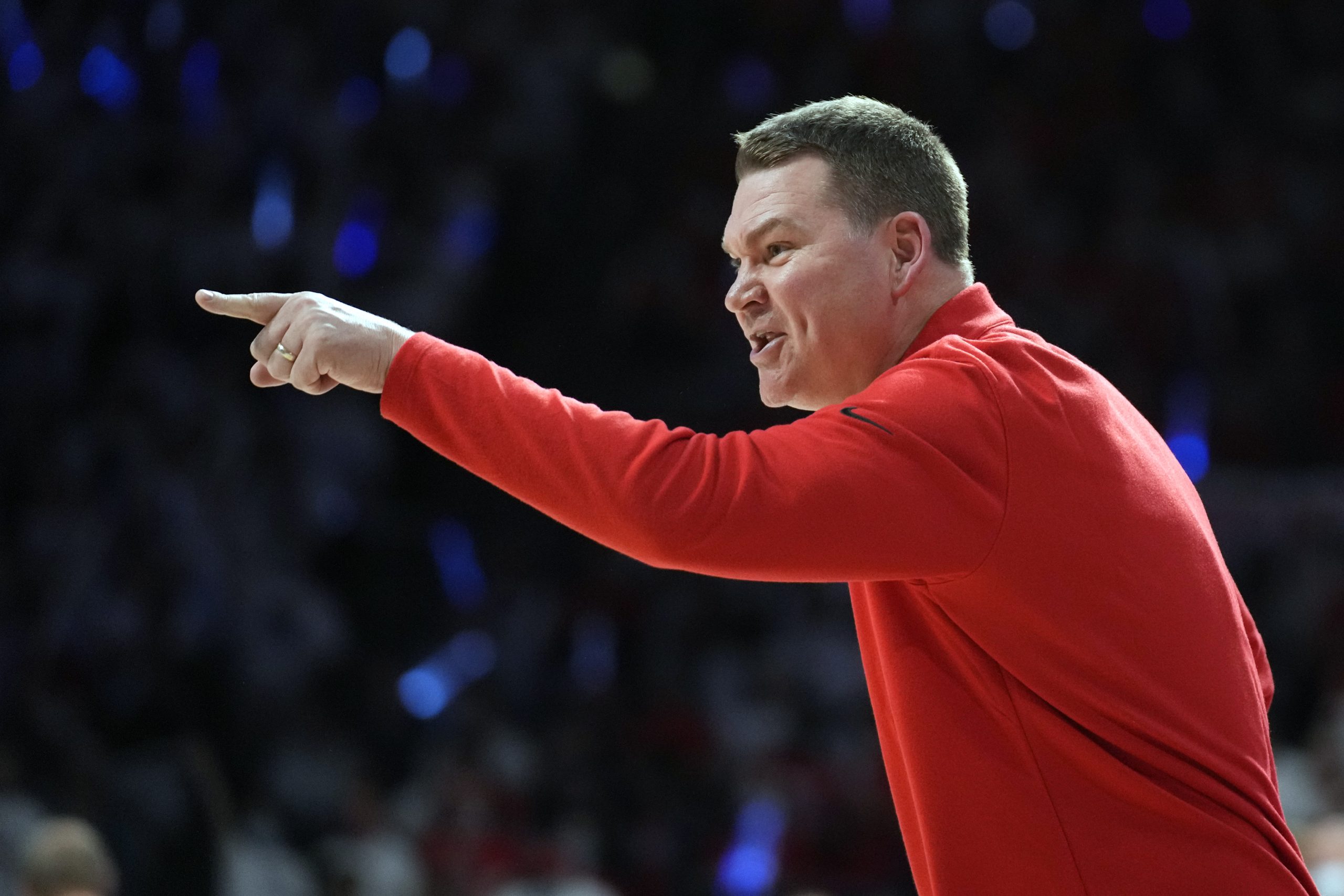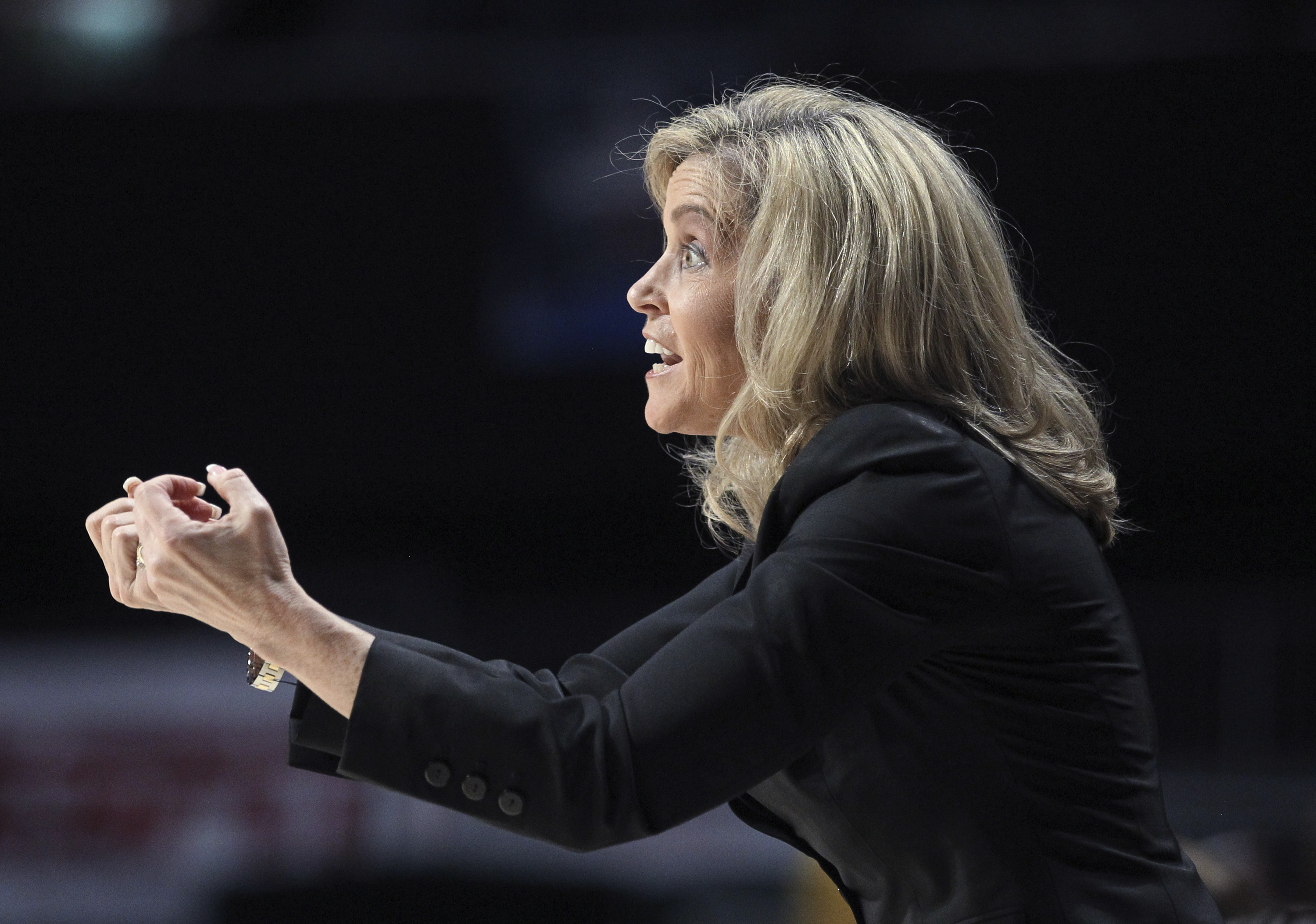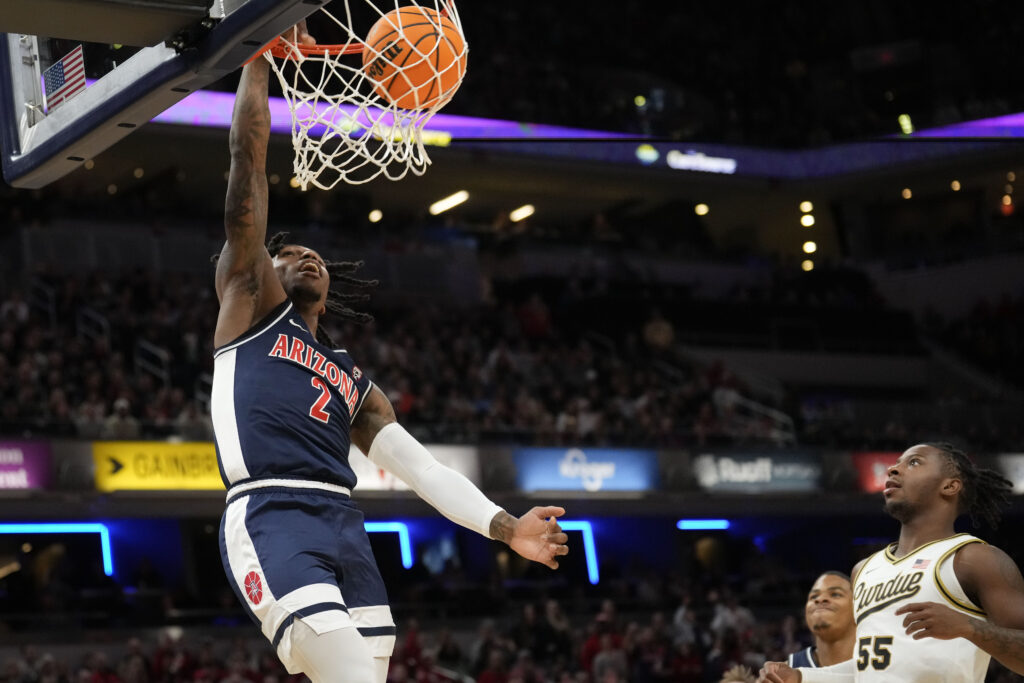It’s a weighty question for office pool participants, media prognosticators and anxious Arizona fans alike.
Should you trust the Wildcats in the NCAA Tournament?
Dare you trust the Wildcats?
Two years in a row, they laid waste to your faith — first losing as a No. 1 seed in the Sweet 16 to Houston, then flopping as a No. 2 seed in the first round to Princeton.
 What reason is there to believe coach Tommy Lloyd’s third experience with March Madness will be any different?
What reason is there to believe coach Tommy Lloyd’s third experience with March Madness will be any different?
What evidence is there to suggest the Wildcats possess the game and the gumption required to fend off plucky Long Beach State on Thursday in Salt Lake City, then repel Nevada or Dayton in the second round?
To indicate they will fulfill the promise of their talent, slay the demons on their shoulders and advance to the Final Four for the first time since 2001?
This is not a complicated conversation, folks, for a single issue explains the early exits against Houston and Princeton: The Wildcats weren’t tough enough, mentally or physically.
NCAA Tournament games are rock fights. Survival requires the fortitude to persevere when momentum turns against you and shots stop falling. Advancement demands the determination to dig out loose balls, claim crucial rebounds and bully your way to the basket (or foul line) when points are at a premium.
Against both Houston and Princeton, the Wildcats cowered. That’s right: They weren’t as tough as Princeton.
But Lloyd has remade his roster in vital spots, giving Arizona a better chance to deal with downturns and navigate the pressure.
Out with Azuolas Tubelis and Kerr Kriisa.
In with Caleb Love, Keshad Johnson and Jaden Bradley, plus more of Kylan Boswell.
That collective swap did not materially improve the Wildcats’ performance during the regular season — they have fewer wins and more losses than they did last year entering the NCAAs.
But the changes have made Arizona tougher and more athletic, thereby boosting the playmaking options. The rotation is stronger in the areas that matter in March.
It starts with Love, whose production in close games powered North Carolina to the NCAA final two years ago.
Only a few seconds really matter in the tournament: the final seconds of possessions in the last eight minutes. When the offense breaks down and the shot clock nears expiration and the outcome is in doubt, playmakers are needed to manufacture points.
Love offered a masterclass in playmaking two years ago. We expect he will do the same this year. Add Johnson, Bradley and Boswell’s enhanced role, and the Wildcats now possess the tools to win rock fights.
If the transformation feels faintly familiar to Arizona fans, well, there is a relevant historical parallel.
Lloyd’s adjustment mirrors the move made 30 years ago by Lute Olson, the Hall of Fame coach who also ran aground in the NCAAs during his career.
In 1992, Olson’s team was eliminated by East Tennessee State in the opening round as a No. 3 seed. (Remember “Mister” Jennings?)
One year later, the Wildcats flopped as a No. 2 seed, blowing a 13-point second-half lead to Steve Nash and Santa Clara.
Jon spoke with Brad Cesmat about the history of Arizona and poor showings in the NCAA Tournemant.
So, how did Olson respond? By getting tougher, quicker and more athletic.
He dispensed with the standard lineup and installed a perimeter-oriented attack with guards Damon Stoudamire and Khalid Reeves, plus 6-foot-2 Reggie Geary on the wing.
With those changes, the Wildcats became more versatile defensively and exponentially more difficult to guard.
Assigned a No. 2 seed in the West in the 1994 tournament, they ripped through the bracket with double-digit victories over No. 15 Loyola, No. 7 Virginia, No. 3 Louisville and No. 1 Missouri.
Three decades later, history is poised to repeat.
This team doesn’t have two players to match the skill of Reeves and Stoudamire — the ingredients aren’t an exact match, in other words — but the collection of perimeter talent, with Love in the lead, offers the same advantages.
The Wildcats are quicker, craftier, and tougher than the version that couldn’t keep pace with Houston or withstand mighty Princeton’s second-half onslaught.
They are better equipped to navigate March.
Should you trust Arizona?
Yes, you should.
*** Send suggestions, comments and tips (confidentiality guaranteed) to pac12hotline@bayareanewsgroup.
*** Follow me on Twitter/X: @WilnerHotline
*** Pac-12 Hotline is not endorsed or sponsored by the Pac-12 Conference, and the views expressed herein do not necessarily reflect the views of the Conference.
Related posts:

(AP Photo/Charles Rex Arbogast)
Wilner Hotline – Pac-12 Hoops Early View of Selection Sunday Wilner Hotline – Shifting fortunes in the desert: ASU’s success looks fleeting while Arizona regains momentum
Wilner Hotline – Shifting fortunes in the desert: ASU’s success looks fleeting while Arizona regains momentum

Arizona State coach Charli Turner Thorne (AP Photo/Luis M. Alvarez)
Metcalfe – Pac-12 Womens Basketball Notebook
(AP Photo/Rick Scuteri)
Pac-12 Basketball: Transfer Portal, not the NBA Draft will shape 2023 seasonJon Wilner
Jon Wilner has been covering college sports for decades and is an AP top-25 football and basketball voter as well as a Heisman Trophy voter. He was named Beat Writer of the Year in 2013 by the Football Writers Association of America for his coverage of the Pac-12, won first place for feature writing in 2016 in the Associated Press Sports Editors writing contest and is a five-time APSE honoree.

